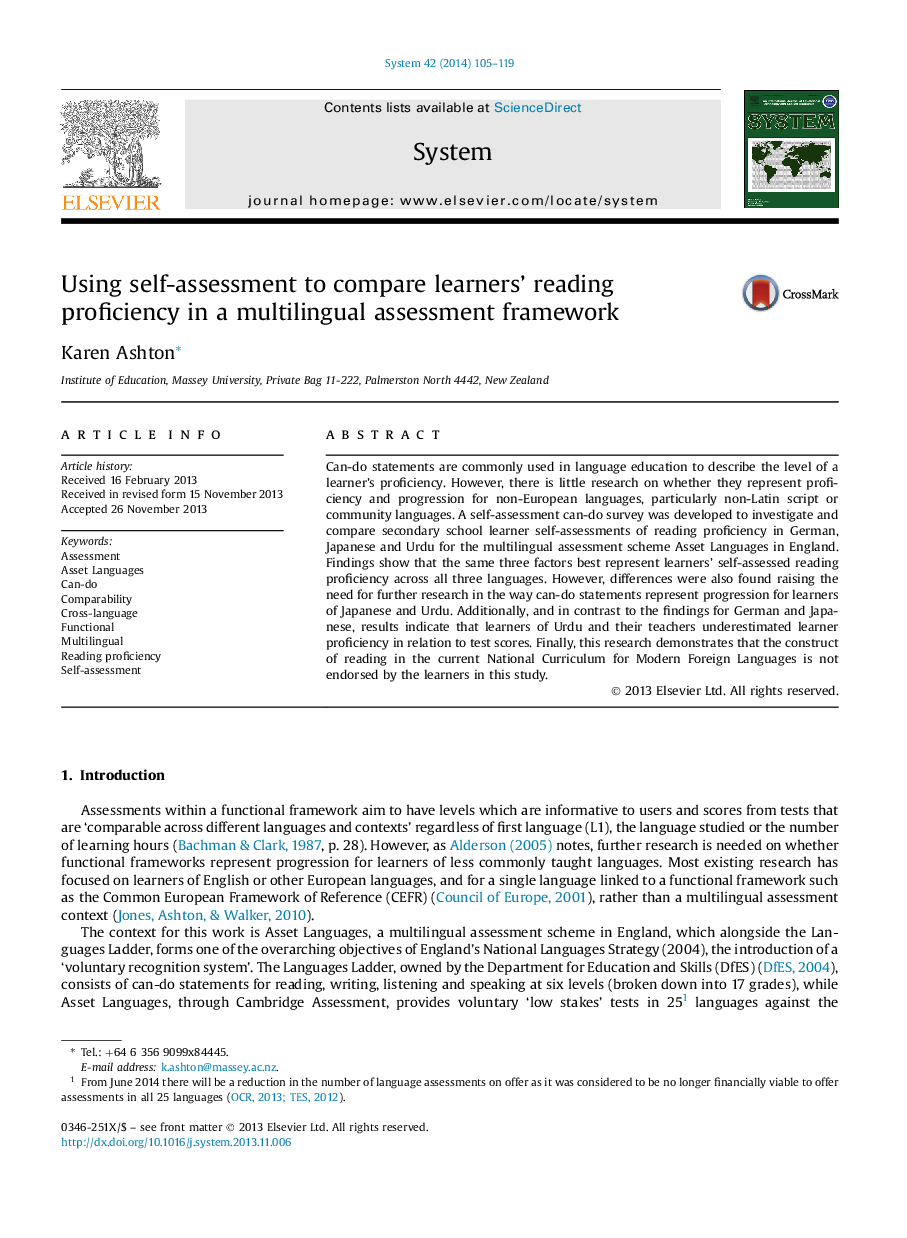| Article ID | Journal | Published Year | Pages | File Type |
|---|---|---|---|---|
| 373412 | System | 2014 | 15 Pages |
Can-do statements are commonly used in language education to describe the level of a learner's proficiency. However, there is little research on whether they represent proficiency and progression for non-European languages, particularly non-Latin script or community languages. A self-assessment can-do survey was developed to investigate and compare secondary school learner self-assessments of reading proficiency in German, Japanese and Urdu for the multilingual assessment scheme Asset Languages in England. Findings show that the same three factors best represent learners' self-assessed reading proficiency across all three languages. However, differences were also found raising the need for further research in the way can-do statements represent progression for learners of Japanese and Urdu. Additionally, and in contrast to the findings for German and Japanese, results indicate that learners of Urdu and their teachers underestimated learner proficiency in relation to test scores. Finally, this research demonstrates that the construct of reading in the current National Curriculum for Modern Foreign Languages is not endorsed by the learners in this study.
